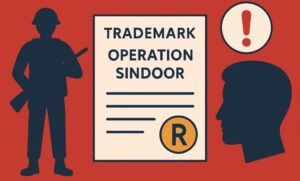Trademarks are valuable assets for companies because they act as representations of a brand’s identity and enable customers to differentiate between the goods and services offered by a variety of different companies. The Indian Trademarks Act of 1999 is the piece of legislation that controls trademark registration and protection in India. A trademark must have specific characteristics to be eligible for registration under this statute. This article explores the key attributes of a good trademark as per the Indian Trademarks Act, with a particular focus on Section 11 and the absolute and relative grounds of refusal.
Table of Contents
ToggleDistinctiveness: The Foundation of a Strong Trademark
Distinctiveness is a key component of a successful trademark. A distinguishing mark is one that distinguishes a brand and aids consumers in determining the origin of goods or services. Naturally distinctive marks have a higher chance of being accepted for registration. These include marks that are random or imaginative and have no connection to the products or services they stand for. For instance,
- “Apple” for computers and electronic devices is an arbitrary mark as it has no direct link to the products.
- “Google” for search engine is a fanciful mark as it is an invented word.
Avoid Descriptive or Generic Terms
Conversely, descriptive, or generic terms are not considered distinctive and forms an absolute ground of refusal of registered of a trademark under Section 9(1)(b) of the Trademarks Act. Descriptive terms directly describe the goods or services and cannot be monopolized by a single entity as a trademark. Generic terms are common names for the products or services and cannot be registered as trademarks. Examples include:
- “Creamy” for ice cream: This term is descriptive as it directly conveys a characteristic of the product.
- “Computer” for computers: This term is generic as it is the common name for the product itself.
Section 11: Relative Grounds of Refusal
Section 11 of the Trademarks Act, 1999, deals with the relative grounds for refusal of a trademark application. It seeks to impede the registration of marks that might conflict with already-registered trademarks or applications that are still pending. Under this section, the following variables are considered:
- Identical or Similar Marks
Section 11 allows for the refusal of a trademark application if it is identical or similar to an existing registered trademark or a pending application in the same class of goods or services. The similarity can cause consumer confusion, making it difficult for them to distinguish between the sources of the products or services.
Example: “Starbuds” for a new coffee brand may be refused if there is an existing registered trademark for “Starbucks” in the same class.
- Likelihood of Confusion
The concept of “likelihood of confusion” is critical in determining the refusal of a trademark application. If a mark is likely to cause confusion among the public regarding the origin or association of goods or services, it will be rejected under Section 11.
Example: “Quick Bite” for a fast-food restaurant might be refused if there is already a registered trademark for “Quick Bites” in the same category.
- Reputation of the Existing Mark
The reputation of an existing trademark is another factor that plays a role in the refusal process. If a mark has gained substantial goodwill and reputation in the market, any new application that could potentially dilute or tarnish the distinctiveness of the existing mark is likely to be refused.
Example: “Nike Fried Chicken” for a new food chain might face refusal due to the reputation of the well-known “Nike” sportswear brand.
Absolute Grounds of Refusal
In addition to relative grounds, the Trademarks Act also specifies absolute grounds for refusing a trademark registration. These are characteristics or qualities inherent in the mark itself that render it ineligible for protection. Some of the absolute grounds for refusal are:
- Lack of Distinctiveness
As discussed earlier, a mark lacking distinctiveness, i.e., descriptive or generic terms, is subject to refusal under absolute grounds. The primary purpose of a trademark is to distinguish the goods or services, and a mark that merely describes the products cannot fulfill this function.
Example: “Crispy Chips” for potato chips may be refused due to its descriptive nature.
- Deceptiveness or Misleading
A trademark that is deceptive or misleading concerning the nature, quality, or geographical origin of the goods or services it represents will be refused registration under Section 9(2)(a) of the Act.
Example: “Pure Silk Towels” for towels made of synthetic materials might be refused as it is misleading.
- Non-Distinctive Elements
If a mark contains elements that are common to the trade or customary in the relevant market, without any distinctive character, it may be refused under Section 9(2)(b).
Example: “Delicious Burgers” for a burger joint might be refused due to the non-distinctive term “Delicious.”
- Prohibited Marks
Certain marks are explicitly prohibited from registration under Section 9(3) of the Act. These include marks that are likely to hurt religious sentiments, are contrary to law or morality, contain government emblems, or are likely to deceive the public.
Example: “Swastika Spices” might be refused as it includes a religious symbol with sensitive connotations.
Non-Descriptive and Coined Terms: The Way Forward
Businesses are advised to use non-descriptive and invented phrases as trademarks to boost their chances of registration success. Coined terms are words that have no meaning until they are associated with a product or service. These types of marks are more likely to be eligible for protection under the Act since they are naturally distinctive.
Example: “Xerox” for photocopying machines is a coined term and is a strong trademark.
Conclusion
To summarise, a good trademark is critical for developing brand recognition and protecting a company’s identity in the marketplace. A good trademark, according to the Indian Trademarks Act, should be distinctive, non-descriptive, and non-misleading. Understanding Section 11 and the absolute ground of refusal is critical for companies trying to register a trademark in India. Businesses can handle the registration process more successfully and guarantee long-term brand awareness and protection by selecting a unique, non-descriptive, and distinctive trademark.
Frequently Asked Questions (FAQs)
What is the overview of Trademark?
Trademarks are distinctive symbols, words, or phrases used to identify and distinguish goods or services of a particular source from those of others. They provide legal protection and prevent unauthorized use by competitors.
What is the main feature of a Trademark?
The main feature of a trademark is to distinguish the goods or services of one entity from those of others.
What is the characteristic of a trademark in India?
The characteristics of a trademark in India include distinctiveness, non-descriptiveness, and compliance with relative and absolute grounds for refusal under the Indian Trademarks Act, 1999.
What is an example of a good trademark?
An example of a good trademark is “Google” for a search engine, which is distinctive, arbitrary, and has gained widespread recognition in the market.





